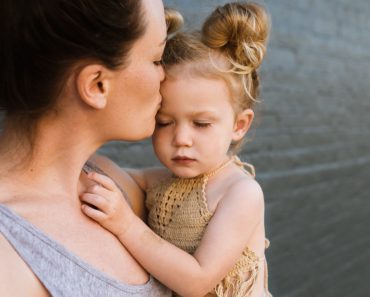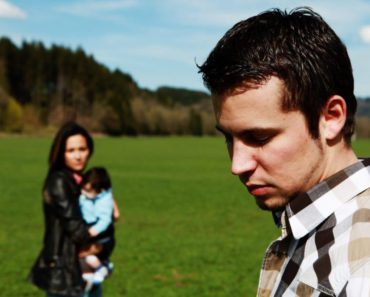Contents

Disorganized attachment in relationships is an insecure attachment style marked by inconsistent and confusing behaviors in relationships. People with disorganized attachment often experienced childhood trauma, like abuse or neglect, leading to a disorganized view of themselves and their connections with others. This can significantly impact their adult relationships, making them more prone to difficulties with trust, communication, and maintaining stability.
This article delves into the impact of disorganized attachment in relationships. We’ll discuss the characteristics of disorganized attachment, how it develops, and how it affects adult relationships. We’ll also offer tips for overcoming disorganized attachment and building healthier, more fulfilling connections.
If you’re interested in learning more about how disorganized attachment impacts relationships, keep reading.
Understanding the Impact of Disorganized Attachment on Mental Health
Disorganized attachment refers to an insecure attachment style that develops when a child experiences inconsistent, unpredictable, or frightening caregiving. This type of attachment can have profound effects on an individual’s mental health throughout their lifespan.
One of the key impacts of disorganized attachment is an increased risk of developing mental health disorders. Individuals with disorganized attachment may be more vulnerable to conditions such as depression, anxiety, and post-traumatic stress disorder (PTSD). The lack of a secure foundation in early relationships can lead to difficulties in regulating emotions and coping with stress, which in turn contribute to the development of mental health issues.
Furthermore, disorganized attachment can influence the formation of interpersonal relationships later in life. Individuals with this attachment style often struggle with trust, emotional intimacy, and maintaining stable relationships. These challenges can exacerbate feelings of isolation, loneliness, and low self-esteem, all of which can have a detrimental impact on mental well-being.
It’s important to note that the effects of disorganized attachment are not set in stone. With proper support and intervention, people can develop healthier attachment styles and improve their mental health outcomes. Therapies such as attachment-based interventions and trauma-focused therapies can help individuals process past experiences and develop more secure attachment patterns.
Understanding how disorganized attachment impacts relationships is vital for therapists, counselors, and anyone involved in fostering healthy connections. By recognizing the signs of disorganized attachment, these professionals can help people develop more secure attachment styles, leading to stronger, more fulfilling relationships.
Craving Connection, Fearing Betrayal: Understanding Disorganized Attachment in Relationships
Disorganized attachment isn’t just a clinical term. It’s a very real struggle for many of us who yearn for deep connection but fear the vulnerability it requires. This article explores the confusing patterns of disorganized attachment in relationships and how they impact both partners on a personal level.
The Origins and Characteristics of Disorganized Attachment Style

Disorganized attachment typically develops in early childhood as a result of inconsistent and unpredictable caregiving experiences. Children with disorganized attachment often have caregivers who are simultaneously a source of fear and a source of comfort for them. This contradictory behavior from caregivers leads to confusion and distress in the child, resulting in a disorganized way of relating to others in adulthood.
In relationships, people with disorganized attachment may exhibit inconsistent behaviors. They may have difficulty forming deep emotional connections or struggle with maintaining boundaries. Due to their past experiences, they may fear intimacy while yearning for connection, leading to a push-pull dynamic in their relationships. These individuals often have difficulties with trust and may feel overwhelmed by closeness.
How does a disorganized attachment style impact relationships and mental health?
Attachment style refers to the way individuals form and maintain emotional bonds with others, typically developed in childhood. A disorganized attachment style is characterized by inconsistent and unpredictable behaviors in relationships. It often results from experiences of trauma, neglect, or abuse during early developmental stages.
In relationships, individuals with a disorganized attachment style may struggle with trust, intimacy, and emotional regulation. They may exhibit contradictory behaviors and have difficulty maintaining healthy boundaries. This can lead to frequent conflicts and misunderstandings with their partners, friends, or family members.
Furthermore, a disorganized attachment style can contribute to various mental health issues. Individuals with this attachment style are more vulnerable to developing anxiety, depression, and post-traumatic stress disorder (PTSD). The unresolved trauma from past experiences can resurface in adult relationships, triggering intense emotional reactions and feelings of insecurity. These people may also struggle with self-esteem and have difficulties forming and maintaining stable and fulfilling relationships.
Imagine constantly yearning for deep connection, but pulling away just as someone gets close. This emotional tug-of-war can be a reality for those with a disorganized attachment style. It can leave you feeling isolated and anxious, impacting not only your relationships, but your overall emotional well-being. Recognizing this pattern and seeking help is the first step towards building healthier connections and achieving greater emotional security.
It’s important to note that having a disorganized attachment style doesn’t mean that one is destined to have unhappy or dysfunctional relationships forever. With therapy, self-reflection, and support, individuals can work towards developing more secure attachment styles and improving their mental well-being.
What are the signs and symptoms of disorganized attachment in romantic partnerships?
Disorganized attachment in romantic partnerships can present itself in various signs and symptoms. People with disorganized attachment may struggle with maintaining stable and healthy relationships due to certain behaviors and emotions.
1. Fear of intimacy: Individuals with disorganized attachment may have difficulty forming close bonds with their partners. They may feel uncomfortable with emotional closeness and intimacy, fearing that they will be hurt or abandoned.
2. Inconsistent behaviors: These individuals may display inconsistent patterns of behavior within their relationships. They may alternate between seeking closeness and pushing their partners away, which can create confusion and uncertainty in the relationship.
3. Difficulty regulating emotions: People with disorganized attachment often struggle with regulating their emotions. They may experience intense mood swings and have difficulty controlling their anger, sadness, or anxiety, which can lead to conflicts and misunderstandings with their partner.
4. Fear of rejection: Individuals with disorganized attachment may have a deep fear of rejection. This fear can lead to hypersensitivity to any perceived signs of rejection or criticism from their partner, resulting in emotional reactivity or withdrawing from the relationship altogether.
5. Chaotic communication: Communication difficulties are common in disorganized attachments. These individuals may have trouble expressing their needs and emotions effectively, leading to misunderstandings and misinterpretations in their romantic partnerships.
6. Past trauma: Disorganized attachment is often rooted in experiences of trauma or neglect during early childhood. These unresolved traumas can resurface in adult relationships, making it challenging to form secure and healthy attachments.
It’s important to note that everyone’s experiences with attachment styles can vary, and these signs and symptoms are not exclusive to individuals with disorganized attachment. Seeking support from a mental health professional can be beneficial for understanding and working through attachment-related challenges in romantic partnerships.
How to Heal a Disorganized Attachment Style

Imagine a dance of love and fear, where you yearn for closeness yet pull away when it gets too real. This is the emotional reflection of disorganized attachment, a pattern that can leave you feeling lost, alone, and struggling to build secure relationships. The good news is, healing is possible, and with some effort and self-compassion, you can break free from this cycle and experience the joy of genuine connection.
Begin a Journey of Self-Discovery
The first step in this healing journey is to understand yourself better. Take a deep dive into your emotions, recognizing the triggers that send you into a whirlwind of fear or anxiety. Are you afraid of being abandoned? Do you feel overwhelmed by intimacy? Journaling or seeking guidance from a therapist can help you unravel these patterns and uncover the roots of your attachment style.
Master the Art of Emotional Regulation
Disorganized attachment often stems from a struggle to manage intense emotions. Just like a wild storm, these emotions can sweep you off your feet, making it hard to connect with others in a calm and secure way. Learn to be the master of your inner world. Practice mindfulness meditation, deep breathing exercises, and progressive muscle relaxation to calm the storm and bring peace to your emotional landscape.
Seek Professional Guidance
A therapist specializing in attachment can be your way out on this healing path. They can help you explore the deep-seated causes of your attachment style and develop healthy coping mechanisms to navigate the complexities of relationships. Think of them as your personal guide, helping you decipher the emotional map of your life.
Open the Door to Honest Communication
Communication is the lifeblood of any relationship, and it’s especially crucial when you’re healing from disorganized attachment. Learn to express your needs and desires assertively, without fear of judgment or rejection. Listen openly to your partner, creating a space where both of you can feel heard and understood. Therapy can also help you develop these essential communication skills.
Build a Circle of Support
Surround yourself with people who are understanding, patient, and supportive. These emotional anchors will provide you with a safe place where you can share your feelings, experiences, and fears without judgment. Their love and acceptance can be a powerful source of strength as you move forward in the healing process
Embrace Self-Compassion
Be kind to yourself throughout this journey. Healing from disorganized attachment is not a sprint; it’s a marathon. There will be ups and downs, twists and turns. Celebrate your progress, no matter how small, and don’t let setbacks discourage you. Remember, you are worthy of love, connection, and happiness.
Believe in the Power of Healthy Love
Everyone deserves to experience secure and fulfilling relationships. Don’t settle for anything less. You are capable of building deep and meaningful connections, where love flows freely without fear or insecurity.
Additional Tips for Healing:
- Delve into self-help books on attachment styles.
- Join online support groups for individuals with disorganized attachment.
- Prioritize self-care activities that promote relaxation and emotional well-being.
Remember, healing from disorganized attachment is a journey of self-discovery, emotional regulation, and building secure connections. With dedication, self-compassion, and the right support, you can break free from the patterns of the past and experience the joy of healthy, fulfilling relationships.
In what ways can therapy help individuals with disorganized attachment patterns improve their relationships and overall well-being?
Therapy can be highly beneficial for individuals with disorganized attachment patterns in improving their relationships and overall well-being. Disorganized attachment refers to a type of insecure attachment that can result from traumatic experiences or inconsistent caregiving during childhood. This attachment style often leads to difficulties in forming and maintaining healthy relationships in adulthood.
Therapy provides a safe and supportive environment for individuals to explore and understand their attachment patterns. Through various therapeutic approaches such as attachment-focused therapy, trauma-focused therapy, or psychotherapy, individuals can gain insight into the origins and impacts of their disorganized attachment.
With the help of a therapist, individuals can develop new coping strategies and skills to heal from past traumas and improve their relationships. They can learn to identify and challenge negative thought patterns and behaviors that may have been influenced by their disorganized attachment. Additionally, therapy can assist in developing new ways of relating to others that are based on trust, empathy, and secure attachment.
By addressing their attachment wounds in therapy, individuals can experience increased self-awareness and self-compassion. They can learn to develop healthier boundaries, communicate more effectively, and create more fulfilling relationships. Therapy can also help individuals build resilience, improve overall well-being, and promote healthier mental and emotional functioning.
It is important to note that therapy for disorganized attachment patterns is often a long-term process that requires commitment and patience. However, with the support and guidance of a skilled therapist, individuals can experience significant improvements in their relationships and overall quality of life.
Disorganized attachment in relationships can have a profound impact on an individual’s mental health. It is important to recognize the patterns of behavior associated with disorganized attachment and seek professional help if necessary. Understanding the root causes and seeking appropriate interventions can lead to healthier and more fulfilling relationships. By fostering secure attachments, individuals can experience greater emotional well-being and overall mental health. Remember, healing is possible, and every individual deserves to experience love and connection in a safe and nurturing environment.







